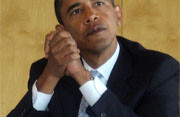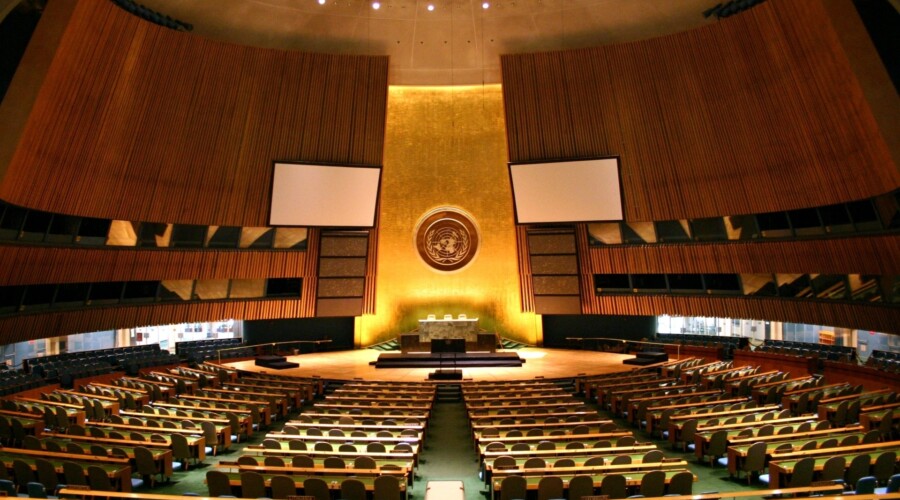Let's give President Obama the benefit of the doubt. As the president has repeatedly asserted, the agreement insures that every pathway to a nuclear weapon will be cut off for at least the next decade and Iran will need to demonstrate compliance before it begins to receive sanctions relief. Yet even if these two things prove true, it is not certain if the deal will ultimately be a good compromise or a rotten one.
I use the word "rotten" purposefully. The Israeli political philosopher Avishai Margalit wrote a book On Compromise and Rotten Compromises to sort out the question implied in the title. [Editor's note: See Margalit's 2009 Carnegie Council talk about this book.]
Rotten compromise, according to Margalit, is accommodation to radical evil—the kind of evil that is cruel, dehumanizing, and genocidal. By Margalit's standard the Iranian regime is not radically evil. It may be nasty and oppressive—it may tolerate chants of "Death to America"—but it is not inhuman in the way of a regime like Nazi Germany or Kim Jong-un's North Korea.
In Margalit's way of thinking, a deal would not be ruled out simply because of the presence of extreme elements in the Iranian theocracy. While it would be wise to heed the old adage, "when someone tells you he wants to kill you, you should believe him," Margalit's model suggests that the worst actors in the Iranian political establishment could be overcome. A good deal could actually help in this direction.
According to Margalit, even if Iran were radically evil a deal would be permissible, perhaps even required, to alleviate an extreme and immediate danger such as the threat of a nuclear weapon. The limited legitimacy conferred by reaching an agreement on such a drastic and perilous case is outweighed by the good accomplished.
Compromises become rotten only when certain provisions sour the whole arrangement. You know an agreement is rotten when, as Margalit says, it is like a cockroach in a bowl of soup rather than a fly in the ointment. You can pick a fly out of the ointment; but just one cockroach will spoil an entire bowl of soup. In his book Margalit gives us two historical examples of cockroaches: The Great Compromise of the American Constitutional Convention, which counted African-American slaves as three-fifths of a person for electoral purposes, was one such case; so too was the forced repatriation of Soviet prisoners and refugees as part of the Yalta Agreement of 1945. Both provisions perpetuated and legitimized cruel and inhuman actions. Neither should have been agreed to.
Is there a cockroach in the nuclear deal? There is no obvious one. But the potential is there. It is in the structure of the deal itself rather than in any single provision.
For an ethicist, one question lingers. Why did the American-led negotiators de-link the nuclear issue from every other issue? Freezing Iran at the threshold of nuclear acquisition may matter less to peace and security in the region than Iran's non-nuclear activities. If the agreement enables Iran to pursue its most malign policies by other means, the deal may prove rotten after all.
In his testimony to Congress, Chairman of the Joint Chiefs General Martin Dempsey mentioned "five malign activities which give us and our regional partners concern. These run the gamut from ballistic missile technology to weapons trafficking, to the use of surrogates and proxies to naval mines and undersea activity, and last but not least to malicious activity in cyberspace." The general pointed out that "the deal does not alleviate our concerns in those five areas," and we will "have to increase our military" to address these threats.
Here is where things can go sour. And here is where there could have been a better deal. Contrary to what President Obama has argued, the alternative to the deal is not necessarily war. The alternative could have been a better deal that addresses at least some of the malignancies the general listed above. The alternative could have also been no deal, leaving the general with the same threats, including the problematic nuclear infrastructure that has been outlined in detail—an infrastructure that will require vigilant monitoring and deterrent capabilities with or without the agreement.
The agreement says nothing about curtailing support for terrorism or respecting even the most basic interests of our allies. There is nothing about shipments of rockets to Hamas. There is nothing about relief for American prisoners held in Iran. There is not even a perfunctory statement of non-aggression in the region.
The failure to use any semblance of linkage may ultimately be the cockroach in the soup. The result of the agreement will be increased military attention in the region, not less. More money and more resources of every kind will need to be trained on Iranian threats to counter the infusion of resources Iran receives when sanctions are lifted. If the United States seeks to disengage from the region—or at least reduce its commitments in the Middle East—this deal is likely to be counter-productive.
In coining the term "linkage" as the keystone to the policy of detente vis-à- vis the Soviet Union, Henry Kissinger argued "it was absurd to pick out one area of that relationship for improvement while confrontation existed in all others." He went on to write, "It made no sense that a subject as complex and esoteric as arms control should be the test case for the prospects of peace while the Soviets were encouraging conflict in the Middle East and killing American in Vietnam."
Arms control is more likely to lag improvement in relations than to lead them. Agreements work when there is a rough consensus on values and interests. The atmospherics surrounding this particular agreement are not favorable. The great powers are pulling in different directions and the western allies are not in alignment either.
Now that the agreement is in place, the real work begins. As Margalit says, "the spirit of compromise is resigning oneself to second best." In his determination to get a deal, to give peace a chance, the president gave up a lot. In Margalit's way of thinking, the deal is a risk for peace worth taking. Time will tell if this proves a wise gamble. I hope the president has made the correct bet and that the Iranians respond in kind. But for now I am listening to the general.




